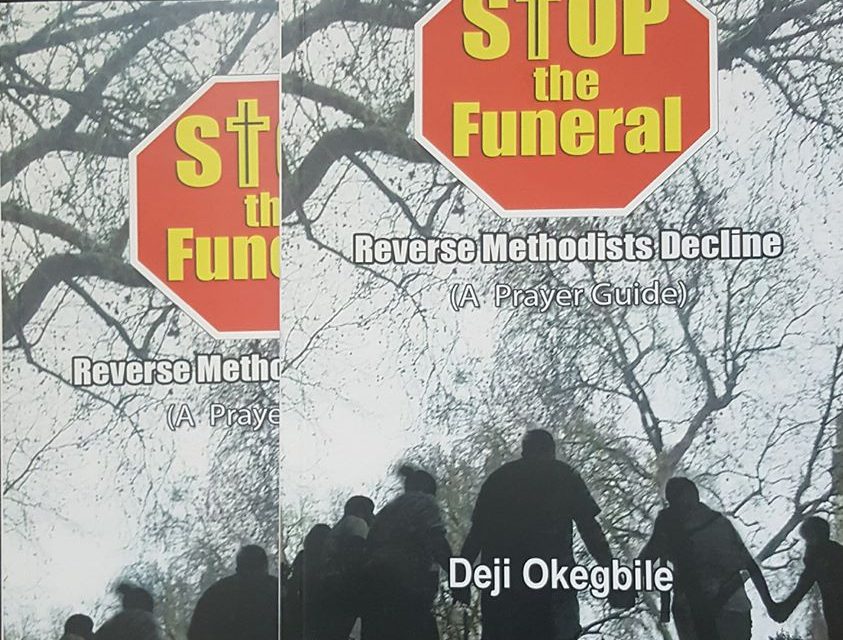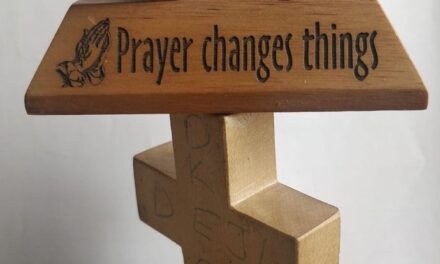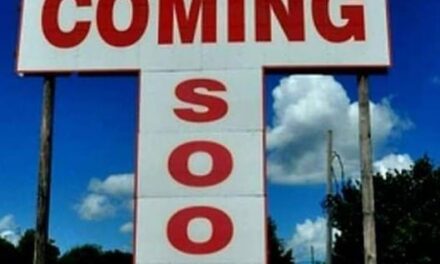Where shall my wondering soul begin?
How shall I all to heaven aspire?
A slave redeemed from death and sin,
a brand plucked from eternal fire,
how shall I equal triumphs raise
and sing my great deliverer’s praise? – Charles Wesley
Wesley Day, May 24, the day Methodists mark John Wesley’s life-changing experience at a meeting in Aldersgate Street, London, remains a pointer to personal conversion. Like many of us today, before May 1738, no one ‘would have said that John and Charles Wesley were anything but devout Christian men. Nevertheless, the change in them that formed the theology behind many of their hymns calls Methodists, especially today, to repentance.
The change we need as a church is more of a ‘conversion’ of souls because heaven and hell are real, no matter what you think. Beloved, beyond the present reality of eternal life, the future hope of eternal life is not without warning about the eternal fire.
“Where shall my wondering soul begin?” has been described as ‘an apt question to ask when facing the formidable task of presenting, arguably, the greatest hymn writer of our faith, the venerable Charles Wesley (1707-1788),’ the eighteenth of nineteen children. [1] In 1727 at Oxford, Charles formed a prayer group with fellow students and his older brother, John, joined them in 1729. Other students ridiculed this “Holy Club” and dubbed them “the Methodists” because they were methodical and disciplined in their Bible study, speech, and lifestyle. [2]
In 1735, still unconverted, Charles was ordained priest in the Anglican Church, and he traveled the same year with his brother, John, to the newly found colony of Georgia to start a mission work among the Indians. Charles returned home the following summer. Beyond their mission failure to Georgia, their meeting with the Moravian profoundly impacted their conversion and their passion for hymns. Charles experienced an evangelical conversion. On Pentecost Sunday, May 21, 1738, he wrote in his journal, “I have found myself at peace with God, and rejoiced in the hope of a loving Christ . . .. I saw that by faith I stood” (C. Wesley Journal, 1738, n.p.). This quotation is believed to form the basis of the hymn “Where Shall My Wondering Soul Begin.” This hymn’s historical and theological analysis is followed by the original title, “Christ the Friend of Sinner.” The “Where Shall My Wondering Soul Begin” gave many prophetic correct and warning texts for these times.
The six questions Charles puts forward within the first three stanzas summons us to stop slighting God’s love and refuse His righteousness to impart. It is a call to escape from eternal hell. Stanza 3 poses two questions:
And shall I slight my Father’s love,
or basely fear his gifts to own?
Unmindful of his favors prove,
shall I, the hallowed cross to shun,
refuse his righteousness to impart,
by hiding it within my heart?
Stanza 4 answers these questions dramatically:
No! though the ancient dragon rage,
And call forth all his host to war,
Though earth’s self-righteous sons engage;
Them and their God alike, I dare;
Jesus, the sinner’s friend, proclaims;
Jesus, to sinners still the same.
Holzemer Beth explained that ‘Charles Wesley minces no words in convicting humanity of the heinous crimes for which Christ sacrificed himself. In fact, from our modern perspective, we might wonder if Wesley’s focus on the illicit activities of his time might have been an obsession. For example, British Wesleyan hymn scholar J. R. Watson suggests that mentioning “harlots and publicans and thieves” referred to problems of crime, prostitution, and unfair taxation in London in 1738. Specifically, “Harlots were an obsession in the London of the 1730s . . ..”
Let us prayerfully sing together:
1 WHERE shall my wondering soul begin?
How shall I all to heaven aspire?
A slave redeemed from death and sin,
A brand plucked from eternal fire,
How shall I equal triumphs raise,
Or sing my great Deliverer’s praise?
2 O how shall I the goodness tell,
Father, which thou to me hast showed?
That I, a child of wrath and hell,
I should be called a child of God,
Should know, should feel my sins forgiven,
Blest with this antepast of heaven!
3 And shall I slight my Father’s love?
Or basely fear his gifts to own?
Unmindful of his favors prove?
Shall I, the hallowed cross to shun,
Refuse his righteousness to impart,
By hiding it within my heart?
4 No! Though the ancient dragon rage,
And call forth all his host to war,
Though Earth’s self-righteous sons engage
Them and their God alike, I dare;
Jesus, the sinner’s friend, proclaims;
Jesus, to sinners still the same.
5 Outcasts of men, to you I call,
Harlots, and publicans, and thieves!
He spreads his arms to embrace you all;
Sinners alone his grace receives;
No need of him the righteous have;
He came to the lost to seek and save.
6 Come, O my guilty brethren, come,
Groaning beneath your load of sin,
His bleeding heart shall make you room,
His open side shall take you in;
He calls you now, invites you home;
Come, O my guilty brethren, come!
7 For you, the purple current flowed
In pardons from his wounded side,
Languished for you, the eternal God,
For you, the Prince of Glory died:
Believe, and all your sin’s forgiven;
Only believe, and yours is heaven!
[1] Dudley-Smith, T, (2013) “Where Shall My Wondering Soul Begin.” The Canterbury Dictionary of Hymnology. Canterbury Press
[2] https://www.umcdiscipleship.org/articles/history-of-hymns-where-shall-my-wondering-soul-begin











Recent Comments